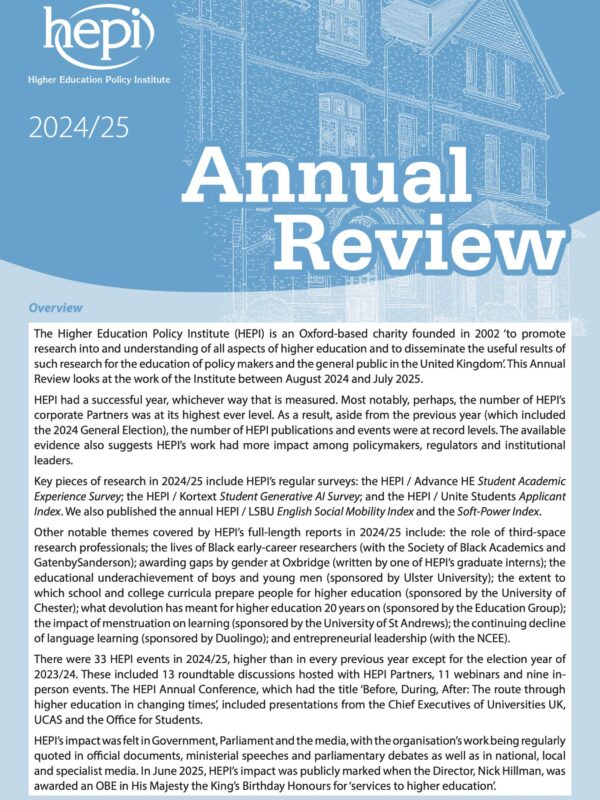Reasons to be cheerful
- Pamela Baxter is Chief Product Officer and Managing Director of IELTS Cambridge at Cambridge University Press & Assessment
At a time when the value of higher education is being called into question, the OECD’s latest Education at a Glance report offers an unequivocal statement of support for the sector – both globally and in the UK.
This annual report gives a snapshot of the state of education in the world’s developed nations. By gathering comparative data covering the OECD’s members as well as partner countries, it lets policymakers measure their country’s achievements and set standards against best international practice.
The 2025 report’s focus on tertiary education gives many reasons for optimism. The highlight is that, with 48% of young adults in surveyed countries holding a tertiary qualification, educational attainment is higher than ever.
The share of 25 to 34-year-olds with tertiary attainment increased over the last five years across OECD and partner countries – rising from 45% (2019) to 48% (2024). In the UK, tertiary education among the same cohort grew from 52% to 60% over that period – twelve percentage points above the OECD’s average.
The report is unambiguous in stating the benefits of higher education: “Supporting equitable access to tertiary education”, it tells us, “remains crucial to strengthening social mobility as educational attainment is closely reflected in labour market outcomes.”
Adults with an undergraduate university qualification (or equivalent), the report tells us, earn on average 54% more than those with only upper secondary education. (This goes up to 83% when those adults have a postgraduate degree.)
But the benefits are not only financial. The report emphasises how tertiary education is directly linked to higher employment rates, and even to better health – with 51% of tertiary-educated adults rating their health as very good or excellent, compared to 26% of those with below upper secondary education.
The report also pinpoints areas where the developed world as a whole must do better. We are told, for instance, that completion rates of young adults going into tertiary education are low – particularly among men – with under half of new entrants finishing their programmes within the expected duration.
The rise and rise of international student mobility
The 2025 report shows the continuing growth of international student mobility in OECD countries, with the number of mobile students as a proportion of total student numbers more than doubling over the past decade. This is good news.
I was especially heartened to read that the UK continues to be one of the most attractive destinations for international students: 23% of all tertiary students in the UK were international according to 2023 numbers – an increase of six percentage points since 2013, and well above the OECD average of 7%.
International students contribute almost £42 billion a year to the UK economy – the equivalent of every UK citizen being £560 better off. This pipeline of international talent is essential to the UK government’s high-growth economic sectors, as well as our universities’ global reputation and competitiveness.
At Cambridge University Press & Assessment we are deeply aware of the importance of international students to the UK’s educational landscape – and indeed to the country’s wider strengths. International students’ ability to fully participate in, and contribute to, their chosen courses is essential not only to their future success, but to the UK’s prospects as an intellectual, economic and cultural power. We consider it our responsibility to make sure that those globally mobile students seeking paths to higher education are equipped with the right skills to thrive. We’re not alone in that.
The 2025 edition of Education at a Glance provides a vivid snapshot of the state of global education. It tells us what we are doing well and, crucially, where there is room for improvement. Cambridge welcomes these findings, and we are proud to be sponsoring its launch.







Comments
Add comment